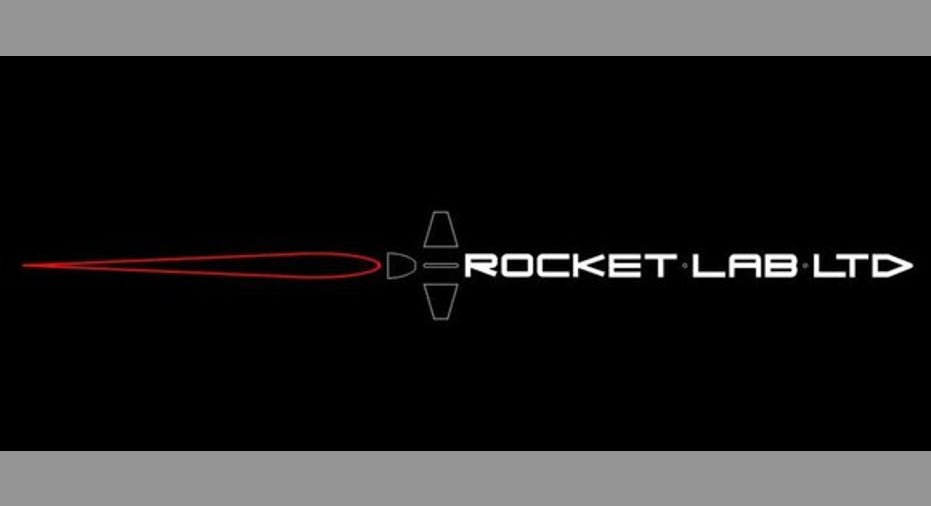Surprise! Space Has a New Unicorn Stock

Billion-dollar publicly traded companies are a dime a dozen (figuratively speaking). That's because once a stock does an IPO and individual investors are able to buy it, they tend to do so -- bidding the stock's price up to the moon and higher. But private companies valued at $1 billion or more before they IPO -- those are rare beasts, so rare that Wall Street refers to them as "unicorn stocks."
And believe it or not, we just found a new one.
I see the horn. Show me the rest of the unicorn?! Image source: Rocket Lab.
Daddy's little space cadet wants a unicorn
Last year we told you a little bit about SpaceX, Elon Musk's satellite-launching, Mars-exploring pioneer investment in space. At an estimated $10 billion or more in value, SpaceX is both the biggest and probably the best-known unicorn stock in the space industry. But this week, it was joined in orbit by privately held Rocket Lab.
We actually introduced you to Rocket Lab last year, the tiny American company promising to launch even tinier "CubeSat" satellites into space by cramming as many as 32 sats at a time aboard its Electron rockets, then blasting them into orbit. Back then, Rocket Lab was one of a large handful of companies with similar plans to open up the market for "microsatellite" launches to private industry -- companies with names like Vector Space Systems, Firefly Space Systems, and Swiss Space Systems.
Since then, Swiss Space has filed for bankruptcy, and Firefly Space fell victim to an intellectual property lawsuit -- announcing earlier this month that all its assets will be sold at auction. Left and right, small space pioneers are dropping like (fire)flies -- but not Rocket Lab. With financial backingfrom aerospace giant Lockheed Martin (NYSE: LMT), Rocket Lab is forging ahead, and just secured a $75 million round of funding from its backers. (As far as we can tell, Lockheed did not itself participate in this funding round, but several other well-known backers did -- including Khosla Ventures, Bessemer Venture Partners, and funding lead Data Collective of San Francisco.)
In a press releaselast week, Rocket Lab explained that the $75 million will be used to fund the construction of a series of Electron rockets -- one of which will be used to blast a Moon Express spaceship to the Moon in an attempt to win the Google Lunar XPrize later this year. As fans of space, we'll be watching that launch closely to see if it can open up the lunar surface to commercial exploitation. As investors, though, we're even more interested by how fast Rocket Lab is growing.
Valuing Rocket Lab
This week's $75 million round of "Series D" funding more than doubles the amount of money that private backers have poured into Rocket Lab so far (to $148 million). Invested in return for only a small portion of the company's stock, Rocket Lab says this latest round of investment values the private company, as a whole, "in excess of $1 billion."
In other words, Rocket Lab is now officially a unicorn stock.
How much larger will Rocket Lab grow to become? That depends on whether it can actually live up to its name and put a rocket in orbit -- and on how fast it can build and sell more rockets subsequently. The company hasn't even conducted a launch yet, but its first rocket ship, dubbed "It's a Test," arrived on New Zealand's North Island last month, and is being prepared for launch into low earth orbit. Rocket Lab says it is also opening a new facility in Huntington Beach, California, that, assuming all goes well,will permit it to "triple [its] production rate" of Electron rockets.
Determining whether Rocket Lab is actually worth $1 billion -- and worthy of the "unicorn stock" title -- will also depend on how much revenue the company can derive from its launches, and how much profit it can earn on that revenue. With the race to build a small-satellite industry still in its infancy, and more companies dying than succeeding so far, how profitable Rocket Lab -- and the other survivors -- will become remains an open question.
But the sooner Rocket Lab launches its first rocket, the sooner we'll know the answer.
10 stocks we like better thanWal-MartWhen investing geniuses David and TomGardner have a stock tip, it can pay to listen. After all, the newsletter theyhave run for over a decade, the Motley Fool Stock Advisor, has tripled the market.*
David and Tomjust revealed what they believe are theten best stocksfor investors to buy right now... and Wal-Mart wasn't one of them! That's right -- theythink these 10 stocks are even better buys.
Click hereto learn about these picks!
*StockAdvisor returns as of March 6, 2017The author(s) may have a position in any stocks mentioned.
Rich Smith has no position in any stocks mentioned. The Motley Fool has no position in any of the stocks mentioned. The Motley Fool has a disclosure policy.



















